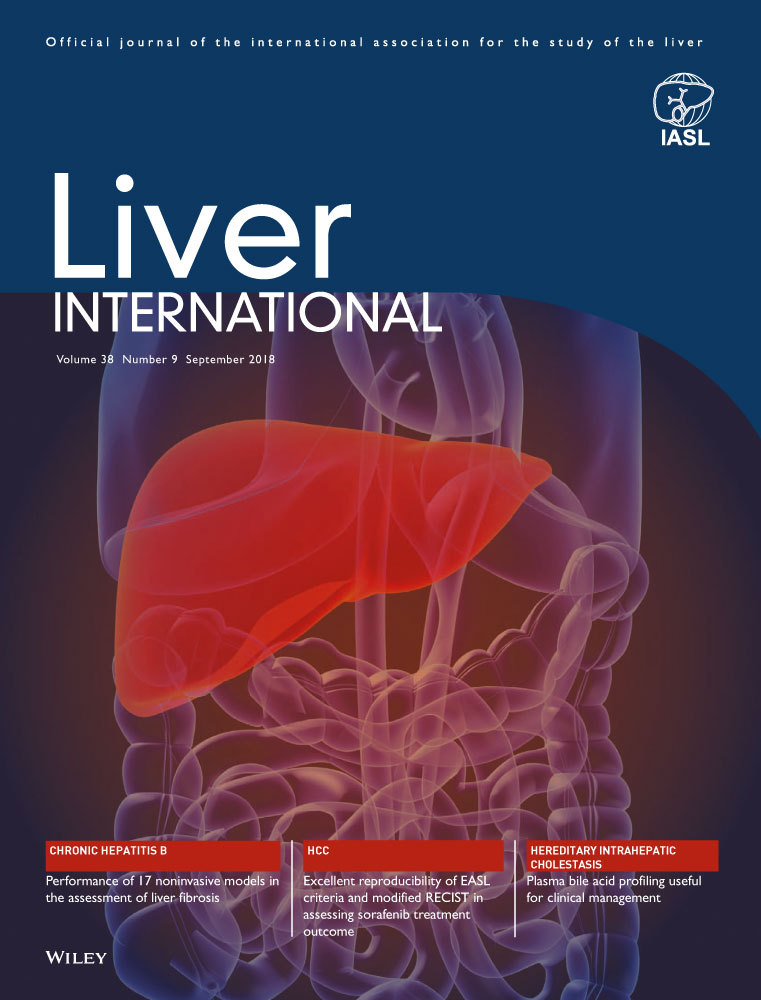Immune response to human telomerase reverse transcriptase-derived helper T cell epitopes in hepatocellular carcinoma patients
Funding information
This study was supported by research grants from the Ministry of Education, Culture, Sports, Science, and Technology of Japan.
Abstract
Background and Aims
Human telomerase reverse transcriptase is a catalytic enzyme involved in telomere elongation. It is expressed in many tumours, including hepatocellular carcinoma. The purpose of the present study was to identify major histocompatibility complex class II-restricted helper T cell epitopes derived from human telomerase reverse transcriptase in patients with hepatocellular carcinoma.
Methods
TEPITOPE software was used to predict helper T cell epitopes based on the entire amino acid sequence of human telomerase reverse transcriptase, and peptides were synthesized based on the predicted sequence. Interferon (IFN)-γ enzyme linked immunospot assay was performed to examine the T cell response to each of the synthesized peptides in peripheral blood mononuclear cells. Furthermore, the peptides were labelled with fluorescein isothiocyanate to test their binding affinity for major histocompatibility complex class II molecules. Lastly, the association between patient characteristics and the level of immune response to these epitopes was examined.
Results
Positive T cell response (>10% enzyme linked immunospot positivity) was detected against 4 of 10 peptides. Among all peptides, positive T cell response to the hTERT68 peptide was detected most frequently. While hTERT68 was HLA-DRB1*0405-restricted, it also bound to other MCH class II molecules. Positive helper T cell response was detected most frequently in hepatocellular carcinoma patients with a low serum alpha-foetoprotein level. Several treatments for hepatocellular carcinoma enhanced the immune response against the peptides.
Conclusion
Our findings indicate that helper T cell epitopes identified in the present study may be useful to investigate immune responses and for immunotherapy in hepatocellular carcinoma patients.
CONFLICT OF INTEREST
The authors do not have any disclosures to report.




